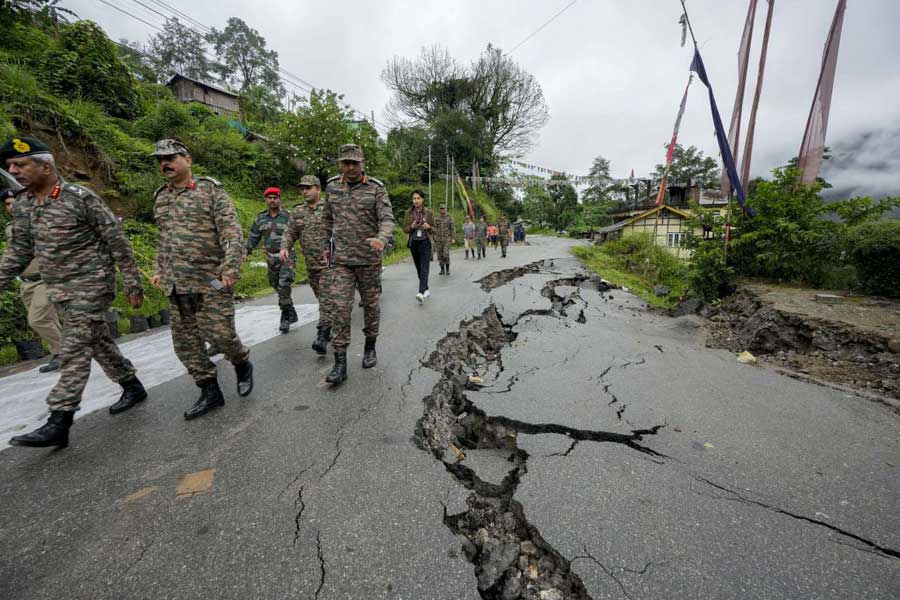Work is on to restore connectivity in areas isolated by flash flood in north Sikkim by setting up temporary bridges and other means, while evacuating stranded tourists will continue on Wednesday, officials said.
Troops of the Army and various government agencies people are working to send essential commodities to the distressed people.
Out of the approximately 1700 tourists stranded in north Sikkim, a total of 690 tourists, including 26 foreigners, have been rescued by air from Lachen and Lachung towns by the Indian Air Force (IAF) since Monday.
The remaining travellers will be shifted on Wednesday as the India Meteorological Department (IMD) has forecast clear weather.
At Chungthang, the area worst affected by the flash flood, Army and BRO personnel cleared the sludge on the road through the town. A log bridge was completed with the help of ITBP and locals.
More than 500 people including tourists have crossed over the log bridge on Tuesday, officials said adding that army engineers are working on strengthening the bridge.
Braving difficult terrain and inclement weather, a team of the army assisted 11 civilians isolated in Chaten area with immediate food and medical aid. A helipad was created and they were rescued later, officials said.
Earlier, a foot track had been opened to the isolated village of Rabom where 245 people had been stranded. Out of them, 129 are employees of Kundan Hydel power project.
Mobile phone connectivity has been restored in Lachung while that in Lachen Valley will be made soon.
The IAF helicopters also transported nearly 58 tonnes of relief materials to North Sikkim for locals, and the Army and ITBP personnel posted there, the chief secretary said.
A week after the flash flood, which happened in the early hours of October 4, 76 people are still missing.
So far, 36 bodies have been found in Sikkim, while 41 bodies have been found at various places along the river in neighbouring West Bengal, according to officials in the two states.
A cloudburst in the Lhonak glacial lake led to the discharge of a huge quantity of water, which triggered a flash flood in the Teesta river, flooding towns and villages and affecting about 87,300 people.
Except for the headline, this story has not been edited by The Telegraph Online staff and has been published from a syndicated feed.










